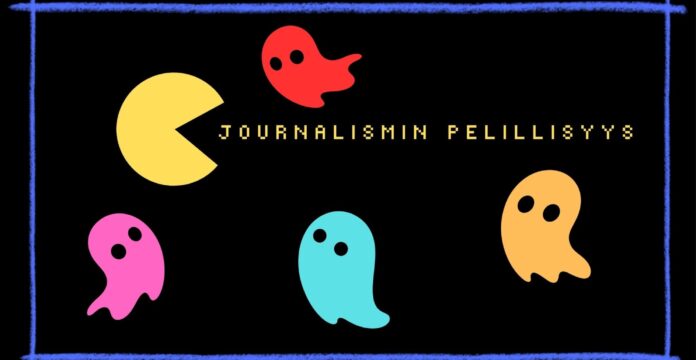“BEING A PHD STUDENT IS EASY, IT’S LIKE RIDING A BIKE, EXCEPT THE BIKE IS ON FIRE, AND YOU’RE ONE FIRE, AND EVERYTHING IS ON FIRE AND YOU’RE IN HELL”
This completely changed my mind about what to write for the blog.
Even though the quote in the t-shirt was extremely pessimistic, it made me laugh. Most probably, it was designed for those frustrated PhD students whose papers had been rejected by refereed journals every time they submitted for publication. I was getting this advertisement because Facebook knows I am a PhD student from my profile information, but why that t-shirt with such a frustrating quote is being advertised to me? Is it because Facebook’s artificial intelligence (AI) has diagnosed me with a depression, or is it something else?
It seems as though Google and Facebook have collaborated together in matters of advertisement. If I Google about a disease, immediately I will get an advertisement about nearby Apteekki in my Facebook newsfeed. I remember searching about postpartum depression for my wife, who recently became a mother. Of course, seeing a depressed wife makes me depressed too, but that doesn’t mean I see everything on fire.
Identity of the individual is the most important thing for Facebook to ensure the effectiveness of its advertisement. Since it has bunch of data of every single user including their education, job, location, interests and many other things, personalizing advertisement seems easier. Google’s advertising strategy is little different from Facebook’s. It utilizes the search history of its users and advertises what they want right now. Since most of the people browse Google just to search but they browse through Facebook every day, every hour with no specific reason; Facebook has become common advertising platform for Google too.
Social media is getting intelligent day by day. At some point we all have to be concerned about our privacy. Posting things, sometimes serious private stuffs in social media is making us an open book, which we may not really want. When we post everything including our emotions; that day is not so far when a human and a machine differ only by mortality.
While concerns of privacy are still at large, personalization seems to be next battleground. Facebook warns us about the snowfall and the rain and suggests us to stay dry. It recommends us to enjoy the sunshine. It notifies all its users with the same message. Some emotions cannot be generalized. I believe nobody knows us better than ourselves. Still, some day AI might be highly personalized to individuals. Instead of seeing the same weather notification that Facebook sends to all its users, I might see a personalized notification saying:
“Hey Niranjan! rain is in the forecast, get wet and go sauna with some chilled Karhu Beers in offer at K-market Suvilahti only at 1.2e/0.33l ”
The above notification has two important components;
- It makes me feel like somebody out there cares about me. It reminds me about my personal emotion, for example; I love to get wet in the rain instead of staying dry and going to sauna afterward with some beers.
- It includes an advertisement which includes all 5Ps of marketing (People(emotion), Product, Price, Place and Promotion)
The above PHD t-shirt advertisement in my newsfeed is a bad example of personalized advertisement. Being a PHD student doesn’t mean I love the t-shirt with some seriously pessimistic quote. Rather I will prefer something inspirational. By the way Facebook! Black is not my favorite color.
To crosscheck the AI, this time I searched this exact term, ‘positive sides of being a PhD student’ in Google. I even searched ‘blue T-shirt for men’ to see the intent effectiveness of Google. I was expecting a blue t-shirt for PhD student with some optimistic quotes. Surprisingly, I got an advertisement from the same page but now with way more positivity.
I’M A PHD STUDENT. WHAT’S YOUR SUPERPOWER?

IF the color was blue and a t-shirt instead of a hoody, it would have been a great accomplishment in the digital advertising. While personalized advertisements like the above may be a positive development, this can also be disastrous if privacy is not respected. Only by deleting the browsing history doesn’t solve our privacy when each and every search is being recorded. The artificial intelligence in advertising might not completely understand the human emotion. Let me give you an example;
One day you suddenly remembered your ex-wife and wanted to know, how she is doing these days. Since you were blocked in her Facebook; you searched about her in Google. You immediately cleared the browsing history to be on the safe side. On the same day you also searched for a beautiful dress to gift to your current wife. The next day when you were browsing through Facebook with your current wife, the highly intelligent Facebook advertised you; “Hey you, here is a beautiful dress for your ex-wife only at $99.99”.
Now you have two ex-wives…
Niranjan Sapkota
PhD Student in Finance



